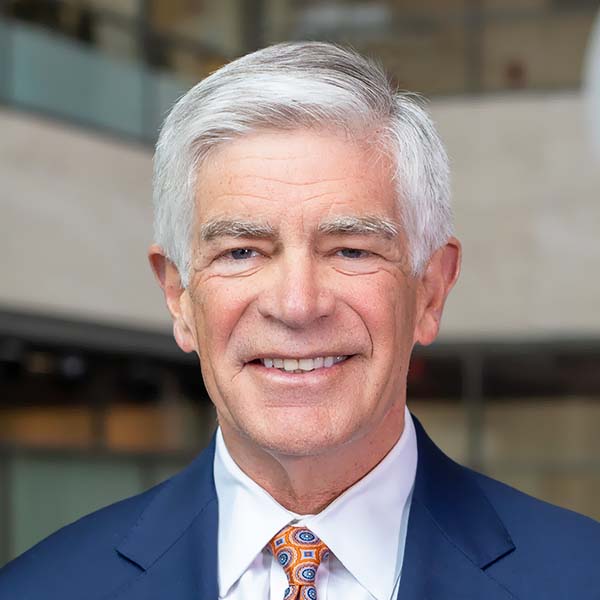Good morning and thank you. It’s a pleasure to be here today for a discussion that’s near and dear to my heart: Philadelphia’s path to inclusive and equitable prosperity. It’s an even bigger pleasure to be doing it in the company of Mayor Nutter, and if I can be even a fraction as engaging as he is in front of a crowd, I’ll consider it a job very well done.
One thing I can offer that Mayor Nutter won’t is the standard Fed disclaimer, delivered so you can be sure to blame absolutely no one but me for anything I say this morning: The views I express today are mine alone and do not necessarily reflect those of anyone else in the Federal Reserve System.
This next panel is on “Business, Equity, and the Future of Philadelphia,” which encompasses something that I think lies at the heart of the economic mobility conversation: The issues we’re discussing today are not issues that matter exclusively to the individuals, families, or neighborhoods they directly affect; they’re issues that matter to all of us, as a city, and they’re issues that affect our collective future.
I was recently in Boston for a conference on economic mobility, and I referred to Philadelphia as “the city of champions,” which was brave, I know. Who says Fed officials don’t live on the edge? It was clearly an act of hubris anyway …
But what I meant — and clarified pretty quickly — was the reality everyone here is all too familiar with: That once again, we outpace the big city competition in terms of deep economic need.
That’s not a crown anyone wants to wear, but it’s a fact we have to acknowledge. I don’t, however, think we should let that reality convince us that nothing can be done to change it or that changes haven’t already been made. And while we have to face the economic facts of the matter, I’d argue that the focus of the discussion should be on the ways we can make a difference, and the work that is already being done, including by the people here today.
And I do mean “we,” because economic mobility in Philadelphia — or anywhere else, for that matter — is something that affects everyone, whether they know it or not. Money may pay deference to neighborhood borders or city limits, but economics doesn’t. We all have skin in this game.
Cities thrive and grow when they attract investment, new businesses, and have a dynamic churn. Influencing factors range from infrastructure like transport, housing, and education to quality-of-life considerations like restaurants and cultural events. A huge influence is the local pool of talent, and when a significant portion of the population has been left behind — when they don’t have access to the training or educational opportunities to participate in that dynamism — it affects us all.
That’s something that I’m going to keep coming back to: the indispensable element of “we.”
Everything about the road to changing Philadelphia’s future is steeped in a holistic imperative. It will take a multitude of people from a multitude of sectors taking a multitude of approaches to a multitude of issues to really move the needle. I don’t think that’s going to be easy and it definitely won’t fit on a bumper sticker ... but it is the ethos that underpins this conference and the work that our exceptional partners, speakers, and attendees today are already doing.
The title of that panel in Boston was “What Are the Barriers to Economic Mobility and for Whom?” and for me, the answer was pretty simple: all of it. This is a vast and intricate and messy economy, and there are too many ways for people to fall through its cracks. We can’t pick one factor and expect it to fix the whole; all those cogs have to move in unison. We need systems change.
That change can be hard, because the more complex the machine, the more facets there are to be tuned. Not to mention that the work is far too often siloed. So we need expertise from across the spectrum and we need the kind of thinking that brought us here today; this is how we figure out how to come together as a city to solve problems that affect us all.
We at the Philadelphia Fed have been lucky enough to work with partners not just across the city but across our entire District to think about how we best fit into and contribute to that process. It was one of the driving principles that led us to launch our Economic Growth & Mobility Project, or EGMP.
EGMP focuses on the three foundational aspects of mobility: job creation — that is, stable, well-paid jobs that lead to financial security; workforce development — that is, education and training for people to get those jobs; and infrastructure, which includes everything from housing to transportation to broadband.
The Fed can’t make grants or finance projects; it’s not in our congressional remit. What we can do is bring people together and offer sound research.
So with the EGMP, we’re forming partnerships around the District, including here in Philadelphia, with communities that are engaged in addressing the systemic issues they face. That community leadership is essential because we can have the best research in the world, but we can’t replicate the knowledge that every community has of its own needs, character, and idiosyncrasies. What we contribute is getting the right people there — we call it “the convening power of the Fed” — and the research we’ve invested in and built over a sustained period of time. We’re calling these Research in Action Labs, and the outcomes aren’t just good for that one community; we can take those results, turn them into a toolkit, and hand it to the next city or town with a similar problem.
In northeastern Pennsylvania, for instance, we had one of the three foundational aspects: jobs at fulfillment centers. But we lacked another: infrastructure. The centers are located outside of town, and the region was built like most of America in the latter half of the 20th century, constructed to bring commuters from the suburbs and outskirts into the city, not the other way around. So we gathered a group of partners, and they came up with a collective set of solutions that worked for them — launching pilot programs, establishing a council on equitable transit, and making transit a priority in the area. The Fed can offer research, data, and support, but communities are the ones that understand their own unique needs. It was the all-hands-on-deck approach that made it successful; we couldn’t have just come in and dictated solutions, and we couldn’t have done it with limited voices around the table. We needed community leaders, businesses, workers; everyone has a perspective that the rest of us probably didn’t think about.
The result is that we’ve already had other areas with similar issues ask about how to replicate the program in their area, and now we can hand them a blueprint.
As another example, right here in Philadelphia, we’ve partnered with Philadelphia Works, Social Finance, and a local company to change the way we prepare the local workforce for the future of work. The pilot is a unique public-private partnership, in which the public sector will provide customized training and the employer will repay the cost of that training once the outcomes are realized.
One of the recurring themes in these discussions is that the high-level economic data look really good: low unemployment, high job creation. But that’s a national average that paves over the realities that we see every day in this city. Overall, the economy is doing really well, but that’s not a reality a lot of your clients and a lot of the people we meet with would recognize.
This partnership is really representative of the way those two perspectives on the same set of data can come together for a solution that works for everyone. The reality of the tight labor market means that employers have to start thinking creatively and long term about how they’re going to address the gaps in their workforces. This is what makes this project stand out: The employer isn’t funding it through its foundation; it’s coming right out of the HR budget. It’s a business decision. It’s a clear endorsement of the value of investing in Philadelphia and our people. Skills development is still too often seen as a social service, rather than an investment. And to be clear: It is an investment. Not just for the companies that need an agile, trained workforce, but for the city’s labor pool overall. And when those trainees become new hires, they also become contributors to the Philadelphia economy.
To sum up: something of an ode to Philadelphia. This is a great city. But we do face multiple issues that need to be addressed, and we can’t do it in isolation. The spirit in which this event was launched — the ethos underpinning much of the work we’re discussing today — is that we need every sector to participate and every problem challenged in unison. It’s a lot of work. But if anyone can do it, Philadelphia can. Even if we couldn’t repeat a Super Bowl win this year. There’s always next year …
Thank you.
Note: The views expressed are my own and not necessarily those of the Federal Reserve System or the FOMC.
View the Full Speech
